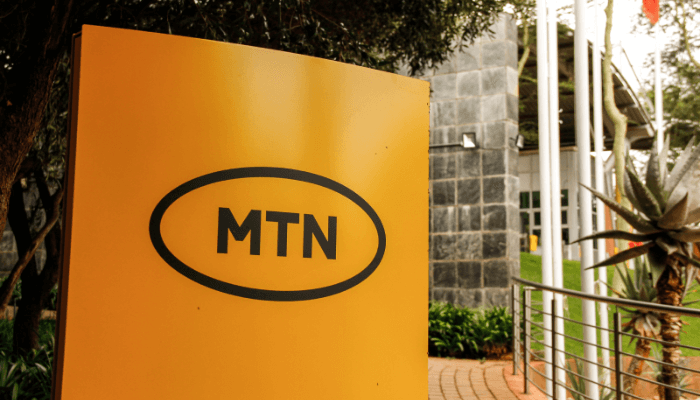According to the venture capital tracking publication Africa: The Big Deal, Africa was the only continent to record a positive growth venture capital deal value in 2022. However, Nigeria and South Africa, the continent’s two biggest VC markets, both recorded negative growth trajectories.
South Africa’s VC funding activity decreased by almost 47% as of December 1, 2022, from over $1 billion in funding in 2021 to about $500 million in 2022. A combination of factors, mainly the economic downturn that has swept through the world since the beginning of the year, appears to be the most probable culprit.
To get a better and broader understanding of SA VC activity in 2022 and insights into what to expect in 2023, TechCabal talked to numerous players in the SA VC ecosystem.
A look back at 2022
According to Keet van Zyl, co-founder and partner at Cape Town-based venture capital firm Knife Capital, 2022 saw, among others, an increase in the number of VCs backing early-stage startups, increased sales cycles for B2B startups as corporates conserve spending, resulting in higher burn rates/shortening cashflow runways and more realistic valuations and funding structures as a result of the global economic slowdown.
But perhaps more important, according to van Zyl, is the fact that credible institutional investors are starting to back the VC asset class in South Africa.
“The lack of support of local institutional investors for the venture capital alternative investment asset class [has been] a huge stumbling block for high-impact entrepreneurship in Southern Africa. Knife Capital Fund III is backed by the IFC, Mineworkers Investment Company, the SA SME Fund, Standard Bank, international development funders and prominent family offices. We are also finalising the due diligence and legal process of a few remaining funders to close out on the $50 million target raise of that fund by the end of Q1 2023,” van Zyl added.
This point is corroborated by Will Green, programme director at GrindstoneXL, a Cape Town-based accelerator.
“2022 has shown that the VC industry in South Africa is maturing and starting to get a lot of attention from corporates, pension funds, and private equity firms,” said Green in an interview with TechCabal.
For Clive Butkow, CEO at Kalon Venture Partners, although a significant amount of capital was raised by SA startups in 2022 albeit not at 2021 levels, the economic downturn has made VCs change their investment strategies.
“[Startup] valuations have come down to more reasonable levels. Cheque sizes are a lot lower and VCs do more due diligence and are a lot more discerning about who they actually invest in as a result of these macroeconomic headwinds.”
The conservative landscape, according to Buklow, has seen startups having to focus more on achieving profitability to justify checks they get from VCs.
“If [a startup] doesn’t get to profitability, it’s going to struggle to raise further capital in the short term. So it is very critical now that entrepreneurs focus on being able to get to break even as fast as they possibly can,” added Butkow.
Another interesting trend in South Africa’s VC sector in 2022 has been the upward tick in racial and gender diversity in fundraising.
“Of the deals that we have tracked this year, 45% of funding went to founding teams with at least one non-white founder. Similarly, close to 20% of funded startups had at least one female co-founder. That’s not nearly close to parity, but it is a promising improvement on past performance. Reducing bias and improving diversity in investment allocation is shifting in priority for global and local investors,” said Mathew Marsden, co-founder of funding insights platform, dealbase.africa.
Tshepiso Kobile, CEO of Southern Africa Venture Capital Association (SAVCA), adds that despite the non-profit organization having its own initiatives to promote diversity in VC in the region, much work still needs to be done.
“Whilst our fund manager development programmes, including our more recent VC and Women Empowerment Mentoring and Incubation Programmes respectively, are making a meaningful impact in assisting diversity through providing technical assistance to diversified fund management firms, much work still needs to be done,” she said.
Bracing for 2023
In 2023, according to van Zyl, the South African VC ecosystem is likely to see increased fundraising for startups that are solving meaningful problems and an increase in the buy-out of VCs and angel investors to facilitate exits and bring liquidity into the market.
Marsden, on the other hand, expects that alternative funding instruments like venture debt, and syndicated deals or SPVs servicing earlier-stage startups will become more prominent in SA in 2023. Fund managers will also likely have to adapt their models to attract new LP’s given the state of global markets. With that said, startups that are able to properly demonstrate market validation by achieving recurring revenue will still be poised for fundraising success.
“I think that a lot of companies with pan-African agendas will continue to look at South African expansion via acquisition, buying their way in rather than building from scratch. This could create great environment for exits in the local ecosystem next year. I also think that alternative sectors like artificial intelligence and healthtech, apart from just fintech which has been the dominant force in VC funding, are going to make their presence felt,” said Marsden.
To be investor-ready in 2023, van Zyl advises startups to focus on getting early traction and setting realistic financial projections that clearly reflect their business model potential.
“[Startups should] be clear on timelines (as fundraising is distracting) but also allow enough time for the process to run its course. Keep investors updated on your business progress even before ‘the ask [for funding]’ through pervading communication,” added van Zyl.
Going into 2023, Green advises startups to take a more pessimistic approach of assuming that funding will not come and instead focus on perfecting their business models and being efficient with the capital they have already raised.
“Startups should try to ensure that whatever money they have raised, there is a 2 to 4 times revenue multiple on that capital. Operational efficiency will also be key as startups seek to be more sustainable over the next 12 to 24, and on average, 18 months of this downturn,” said Green.
Butkow adds that in 2023, startups should try to bootstrap as long as possible and achieve significant revenue growth before going the fundraising route.
“I think there is still capital to be deployed out there, but it’s not going to go to mediocre companies. It’s going to be for the great companies that are really, really outperforming their peers and showing that they need VC capital, not for their existence but to supplement an already solid business model.”
Kobile points to the need for VC fund managers to play a significant role in helping founders strike a balance between abiding my corporate governance principles while also being creative.
“An important first step at a fund level is for VC fund managers to continue to set the right foundation in the areas of governance, well constituted and diversified teams, financially viable funding models, a strong pipeline of attractive investment opportunities and a compelling pitch document that addresses investors’ risk appetite, financial and impact requirements…Clearly communicating the business case for partnerships for start-ups, and leveraging platforms that enable these, is an area that in my view holds a lot of promise,” she added.
2022 was a tough year for the VC sector across the world, South Africa not being any different. Despite the challenges, startups building exciting and potentially life-changing products were funded in South Africa.
Some positives recorded in the ecosystem include increased diversity in funding, albeit still pitiful, an increase in funding for early-stage startups, more attention from institutional investors into VC funds, and numerous successful exits.
As 2023 approaches, it will be interesting to see how the industry will adapt to a tough macroeconomic environment caused by surging interest rates and a possible recession on the way. Will startups prefer venture debt over venture equity? Will we see more exits? Will AI startups surpass fintech startups in funding secured? Will diversity initiatives make some significant strides? TechCabal will keep you updated throughout!





















